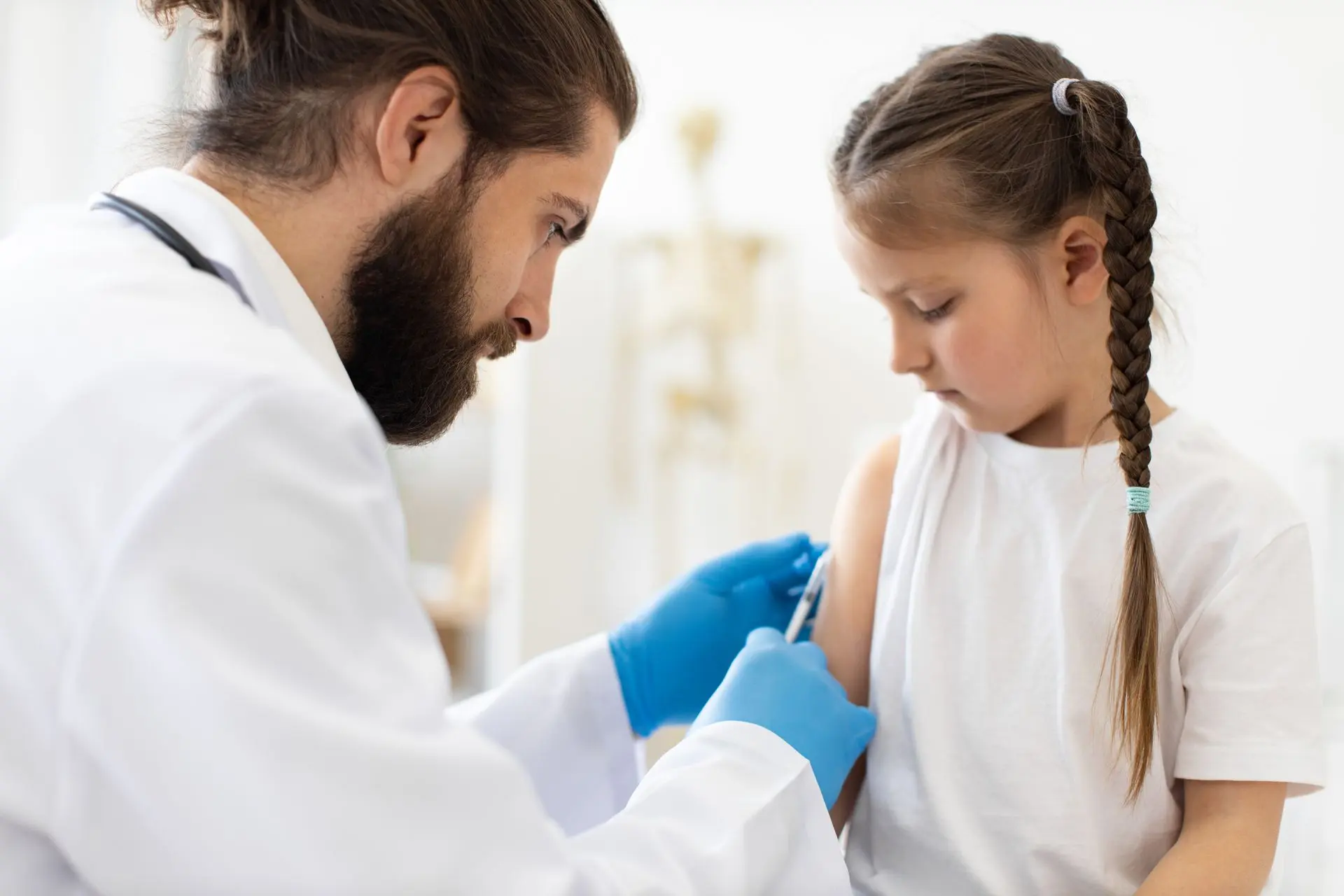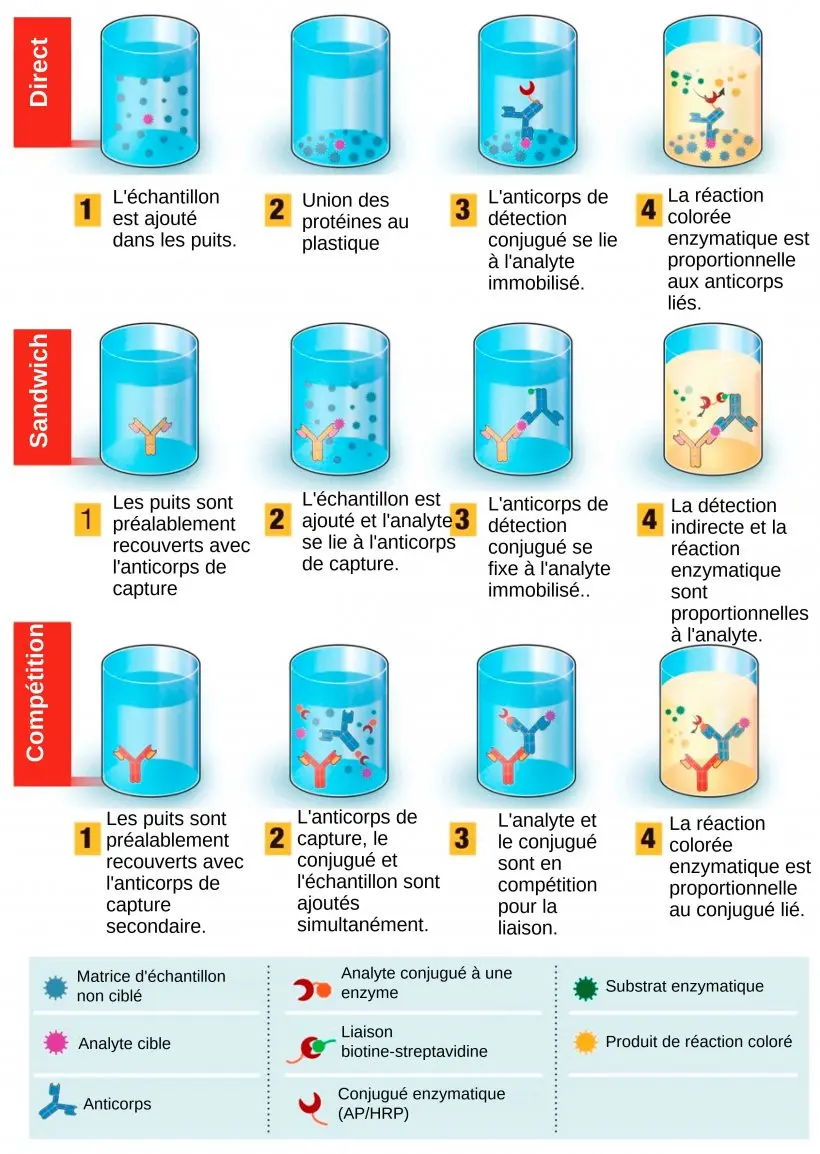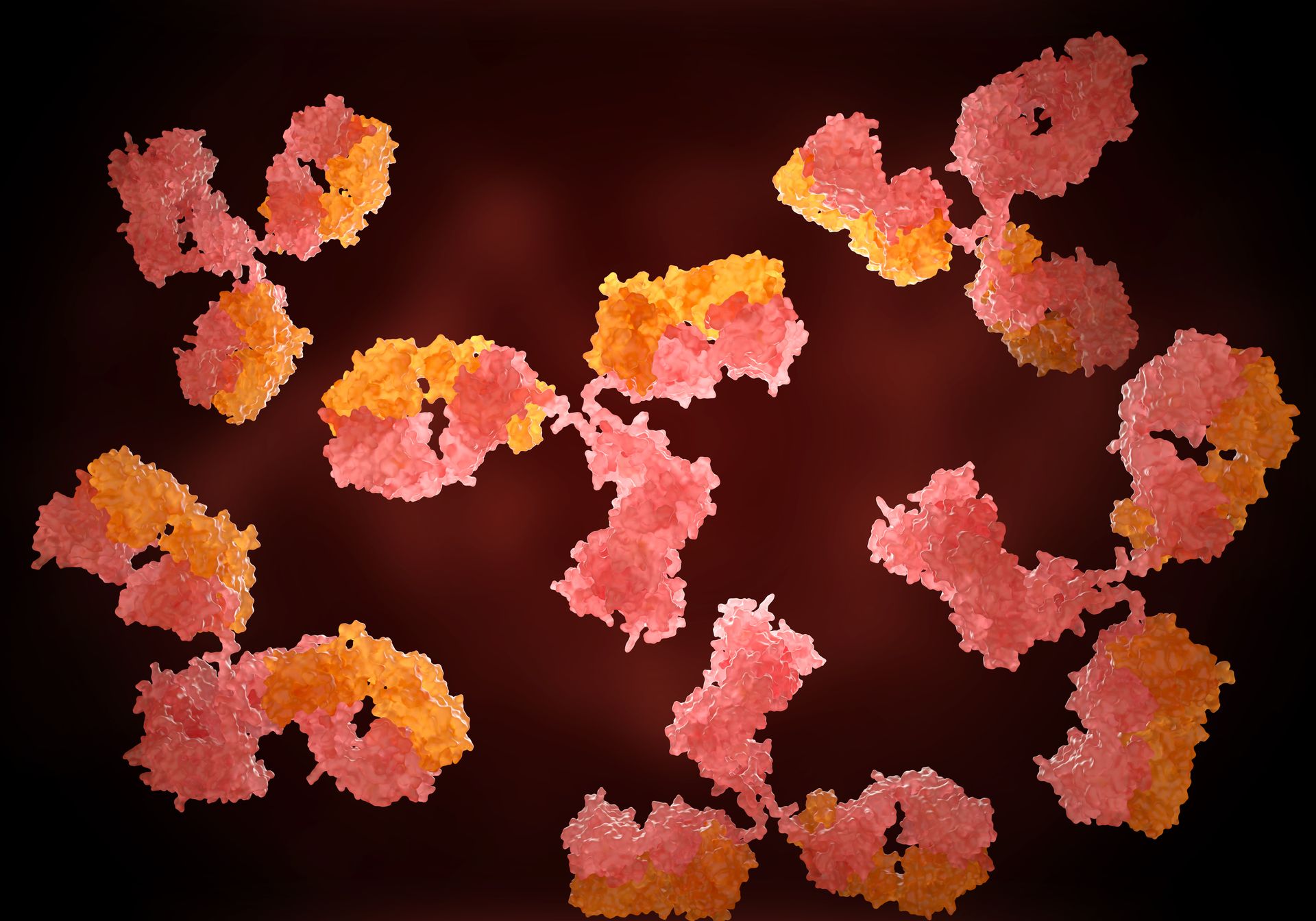we are committed to empowering researchers, laboratories, and healthcare professionals with cutting-edge biotechnology tools. Our platform offers a comprehensive range of products designed to support advancements in molecular biology, immunology, and diagnostics.
Explore Our Technologies and Instruments
ELISA
Enzyme-Linked Immunosorbent Assay (ELISA) is a powerful and widely used technique for detecting and quantifying proteins, peptides, hormones, and other molecules in biological samples. ELISA works on the principle of antigen-antibody interactions, where a target molecule (antigen) is captured by a specific antibody.
The interaction is then visualized and quantified using an enzyme-linked secondary antibody that produces a measurable color change or fluorescence in the presence of a substrate.
Applications of ELISA

Medical Diagnostics :
Identify biomarkers for diseases such as cancer, autoimmune disorders, and infectious diseases.

Pharmaceutical Research :
Monitor therapeutic protein production, validate drug efficacy, and perform pharmacokinetics studies.

Food Safety Testing :
Detect contaminants, allergens, and pathogens in food products.

Environmental Monitoring :
Measure pollutants, toxins, or allergens in environmental samples

Veterinary Medicine :
Diagnose diseases in animals through biomarker detection.
Principle of ELISA
ELISA operates on the foundation of antigen-antibody binding specificity.
- Capture Phase : A target molecule (antigen) binds to a specific antibody immobilized on a microplate surface.
- Detection Phase : A secondary antibody, conjugated with an enzyme, binds to the antigen.
- Signal Generation : The enzyme interacts with a substrate to produce a detectable signal, typically a color change or fluorescence, proportional to the analyte concentration.

Antibodies: Essential Tools for Research and Discovery

Antibodies are specialized proteins produced by the immune system to recognize and neutralize foreign molecules, such as pathogens or toxins. In research, these powerful biomolecules are utilized as highly specific tools to detect, quantify, and manipulate target molecules, making them indispensable in a wide array of scientific disciplines.
Antibodies characteristics:
- Specificity: Bind precisely to unique molecular targets (antigens).
- Versatility: Applicable across various experimental techniques.
- High Affinity: Strong and stable interaction with target molecules.


Types of Antibodies :
Monoclonal Antibodies: Produced from a single immune cell clone; offer high specificity and consistency.
Polyclonal Antibodies: Derived from multiple immune cell lines; recognize multiple epitopes on the same antigen, providing robust signal detection.
Recombinant Antibodies: Engineered for precise targeting and reduced variability.
Cell Biology
- Immunofluorescence (IF) and Immunohistochemistry (IHC): Visualize proteins in cells or tissue sections.
- ChIP (Chromatin Immunoprecipitation): Study protein-DNA interactions in gene regulation.
Therapeutic Research
- Investigate mechanisms of diseases like cancer, autoimmune disorders, and infectious diseases.
- Develop and test novel therapies, including monoclonal antibodies and vaccines.
Diagnostics and Biomarker Discovery
Identify disease-specific biomarkers for early detection and personalized medicine.
Functional Studies
Neutralize or activate specific proteins to study their role in cellular processes.
Applications of Antibodies in Research
1-Molecular Detection
- Western Blotting: Detect specific proteins in complex mixtures.
- ELISA: Quantify proteins, peptides, and other biomolecules.
- Flow Cytometry: Analyze and sort cells based on surface or intracellular markers.